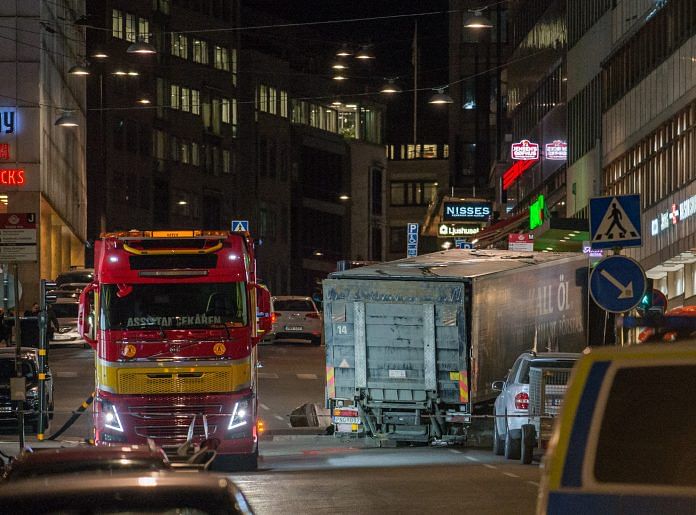The severity of the response to a terror attack depends on where it happened, who did it, and even what they said before executing it. The everyday-ness of terrorism could be making people terror-numb, even as the US President cracks down on America’s diversity (program).
The power of ‘Allahu akbar’
If the hurricane that ravaged Puerto Rico yelled “Allahu akbar” before leaving scores of leaving American citizens in desperate need of power, food and water, Trump probably would’ve instantly seen the storm as evil. That’s how crucial the utterance of the phrase is in determining the US administration’s reaction to a tragedy, writes Wajahat Ali in The New York Times.
“That’s why it hurts that on Tuesday, ‘Allahu’ and ‘akbar’, those two simple words so close to our hearts, instantly shaped the entire news coverage and presidential response. A common, benign phrase used daily by Muslims, especially during prayer, is now understood as code for ‘It was terrorism’.”
“It’s easy to forget that language is often hijacked and weaponized by violent extremists. Some people yell ‘Allahu akbar’ and others chant ‘heritage’, ‘culture’ and ‘white pride’. The preferred slogans of a killer don’t make much difference to the people whose lives are lost or their loved ones, but they make all the difference in Americans’ collective understanding of a tragedy.”
Terror-numbed
Are ISIS attacks losing their ability to terrify? It might seem like an odd question to ask on a day when an attack motivated by loyalty to ISIS has claimed several lives. Instead of terrifying people more, more terrorism can make people numb to violence, write Amarnath Amarasingam and Colin P. Clarke in Slate.
“By continually staking claim to big and small terrorist attacks, regardless of target selection or casualty count, ISIS has attempted to instill a sense of omnipresent and unpredictable danger. And in the process, terrorism fatigue may be setting in around the world.”
“The common assumption is that more terrorism inevitably means people are more terrified, but some research suggests the opposite. In essence, individuals find ways to integrate and normalize some violence as part of their life, and make strategic choices to navigate threats. This is true regardless of whether we are talking about bar fights, gang-affected neighborhoods, or terrorism. We avoid some gathering places and steer clear of certain neighborhoods after dark, and these insights become points of resilience for everyday people who factor in whom and what to avoid throughout their day.”
The travel ban couldn’t have prevented the Manhattan attack
Even though Donald Trump predictably promised in a tweet to step up the Extreme Vetting Program, “the notable fact is that even if the administration’s signature multination travel ban had been in place for decades, it would not have kept Saipov from entering the country legally and obtaining a green card before going on his killing spree. And getting a visa through a ‘diversity program’ does not mean that he wasn’t vetted by the United States before his arrival or that he couldn’t have been denied entry on security grounds.”
Reversing Brexit or impeaching Trump won’t mean ‘politics as normal’
“If we think that by simply manipulating our way out of Brexit, dumping Trump through legal means or narrowly stopping European populists through uneasy coalitions we have won and the enemy has been vanquished, we are deluding ourselves and we will ultimately reap the whirlwind of the political repercussions,” he writes.
“Brexit, Trump and the wider rise of populism in the west are the symptoms of the disease, not its causes. It is painful that this still needs saying but it clearly does.”
“Once the dust began to settle after the six months which shook the western world, we should have started thinking seriously about the causes. Was it cultural? Economic? Spiritual? Did we give too much or too little? Those debates have never really happened in earnest, because they ask us to go into deep and difficult places that many thought we had moved beyond. They ask us to challenge our assumptions and make passionate arguments for things we hoped society was agreed on.”



